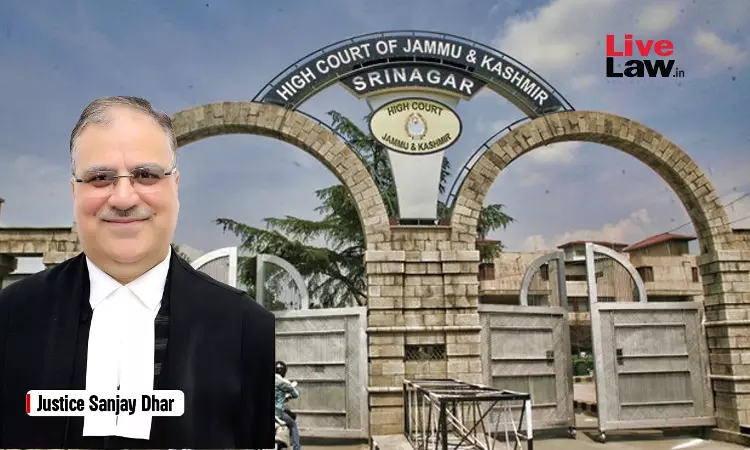- Home
- /
- High Courts
- /
- High Court of J & K and Ladakh
- /
- Failure To Communicate Rejection Of...
Failure To Communicate Rejection Of Detenue's Representation In Time Vitiates Detention Order: J&K High Court
LIVELAW NEWS NETWORK
3 April 2025 3:10 PM IST
Emphasizing the importance of procedural safeguards in preventive detention cases, the Jammu and Kashmir and Ladakh High Court has ruled that the government's failure to communicate the rejection of a detenue's representation in a time-bound manner is sufficient to vitiate the detention order.Justice Sanjay Dhar, while quashing the detention of one Mohd Iqbal Koka under the Jammu &...
Emphasizing the importance of procedural safeguards in preventive detention cases, the Jammu and Kashmir and Ladakh High Court has ruled that the government's failure to communicate the rejection of a detenue's representation in a time-bound manner is sufficient to vitiate the detention order.
Justice Sanjay Dhar, while quashing the detention of one Mohd Iqbal Koka under the Jammu & Kashmir Public Safety Act (PSA), held that an unexplained delay in deciding and conveying the rejection of a representation strikes at the core of a detenue's fundamental rights.
Citing Sarabjeet Singh Mokha vs. District Magistrate, Jabalpur and others”(2021), the court observed,
“.. failure in timely communication of the rejection of the representation is a relevant factor for determining the delay that the detenue is protected under Article 22(5). It has been further held that failure of the government to communicate rejection of detenue's representation in a time bound manner is sufficient to vitiate the detention order”
The case arose from the detention of Koka issued by the District Magistrate, Anantnag citing alleged activities prejudicial to the security of the Union Territory.
Challenging the order, Koka's counsel, Advocate Usman Gani, argued that the detention was imposed mechanically without due application of mind. He contended that the grounds of detention were vague, unsupported by substantive evidence, and that the petitioner had been denied access to crucial material necessary to challenge the detention. Most importantly, he pointed out that Koka's representation against the detention, filed on February 27, 2024, had not been considered in a timely manner, violating his statutory and constitutional rights.
The government, in its defense, claimed that all statutory requirements had been met and that Koka was informed of his right to make a representation. However, the Court, after examining the records, found that the detenue's representation had been received by the authorities in March 2024 but was decided only on June 27, 2024 after a delay of nearly three months.
“.. The purpose of furnishing the grounds of detention within a maximum period of ten days is to enable a detenue to make a representation against the order of detention at the earliest opportunity. Thus, a duty is cast upon the detaining authority or the government to consider the said representation at the earliest opportunity. Failure to decide the representation of a detenue within a reasonable time in an expeditious manner strikes at the valuable right”, explained Justice Dhar.
Moreover, the Court noted that the communication rejecting Koka's representation was merely an inter-departmental exchange between the Home Department and the District Magistrate, with no proof that the detenue was ever informed of the outcome. Failure to promptly communicate the rejection of a representation further compounds the violation of a detenue's rights under Article 22(5) of the Constitution, the court stated.
Concluding that prolonged and unexplained delay in considering and communicating the rejection of the detenue's representation had rendered the detention order illegal, the Court quashed the detention order and directed the immediate release of Koka, provided he was not required in connection with any other case.
Case Title: Mohd Iqbal Koka Vs UT Of J&K
Citation: 2025 LiveLaw (JKL) 129



